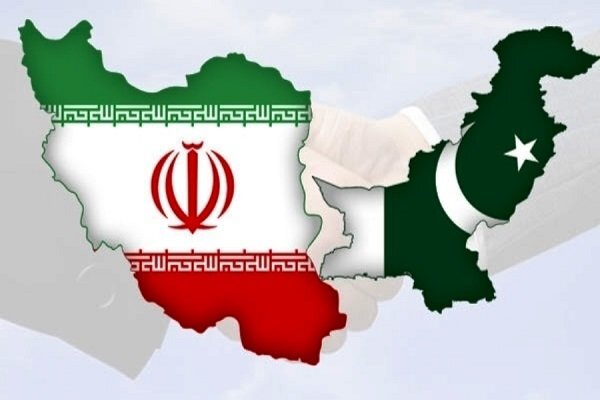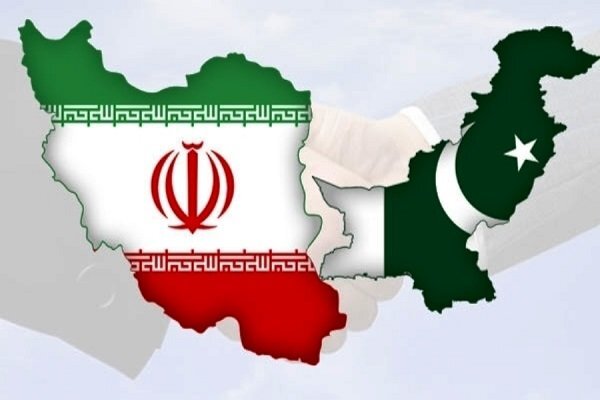Table of Contents
ToggleUnderstanding Iran-Pakistan Gas Pipeline Dispute
In recent times, the issue of IP- Iran-Pakistan gas pipeline dispute has gained significant attention on the global stage. The dispute between Tehran and Islamabad over the payment of gas royalties has led to various discussions and debates, shaping the narrative of economic relations between the two neighboring nations.
This article aims to provide a comprehensive overview of the Tehran-Islamabad IP gas royalties dispute, highlighting its key aspects, implications, and potential resolutions.

Unveiling the IP Gas Royalties Dispute
The IP gas pipeline, also known as the Iran-Pakistan gas pipeline, is a significant energy infrastructure project designed to transport natural gas from Iran to Pakistan.
The project, initially conceived to alleviate Pakistan’s energy crisis, has encountered multiple challenges, with one of the most pressing being the dispute over gas royalties.
Tehran’s rejection of Islamabad’s notice regarding these royalties has escalated tensions, creating ripples in diplomatic and economic spheres.
Historical Context:
The origins of the Tehran-Islamabad IP gas royalties dispute can be traced back to the inception of the pipeline project. Iran, endowed with vast natural gas reserves, sought to export its energy resources to energy-deficient Pakistan.
Both nations entered into agreements outlining the terms and conditions of gas supply and the associated royalties. However, as time progressed, economic dynamics and geopolitical factors evolved, giving rise to differing interpretations of these agreements.
Key Points of Contention
- Royalty Calculations: Central to the dispute is the methodology for calculating gas royalties. Iran asserts that Pakistan has been underpaying for the gas supplied, while Pakistan claims that the royalty rates are subject to negotiation due to changing market conditions.
- Force Majeure and Delays: The project has experienced numerous delays attributed to technical, financial, and security reasons. These delays have led to discussions about the applicability of force majeure clauses and their impact on royalty payments.
- Geopolitical Influence: The Tehran-Islamabad dispute also takes place against the backdrop of complex geopolitical dynamics. The involvement of other regional players and global energy markets adds layers of complexity to the negotiation process.
Implications: Economic, Diplomatic, and Strategic
The dispute over IP gas royalties carries substantial implications for both Iran and Pakistan, as well as the broader international community.
- Economic Impact: The uncertainty surrounding royalty payments hampers the financial planning of both nations. It also affects investor confidence in the energy sector, potentially deterring future investment in such projects.
- Diplomatic Relations: The dispute places strain on Tehran-Islamabad diplomatic relations. The inability to resolve the issue amicably could lead to deterioration in overall bilateral ties.
- Strategic Considerations: The IP gas pipeline holds strategic importance for Pakistan’s energy security and Iran’s economic interests. A resolution could strengthen regional stability and cooperation.
Potential Resolutions and the Way Forward
Resolving the Tehran-Islamabad IP gas royalties dispute requires a multi-faceted approach, encompassing legal, economic, and diplomatic strategies.
Both nations must engage in transparent negotiations, considering the evolving energy market dynamics and international norms. The involvement of impartial mediators could aid in finding a middle ground and fostering a lasting solution.
Tensions Unveiled: Pakistan’s Stalled Iran-Pakistan Gas Pipeline Endeavor
In a diplomatic impasse, Iran has rejected the force majeure declaration dispatched by Pakistan, signaling a halt to the much-anticipated Iran-Pakistan gas pipeline initiative.
In succinct terms, Pakistan’s missive communicated its incapability to forge ahead with the project, contingent upon the endurance of US sanctions against Iran or a tacit nod from Washington, granting Islamabad the green light to revive a project that languished in dormancy for nearly a decade, amidst acute energy scarcities plaguing the South Asian nation housing a populace exceeding 240 million.
During a media briefing, Mr. Musadik Malik, Pakistan’s State Minister for Petroleum, underscored that a force majeure notification was dispatched to Iran under the auspices of the Gas Sales and Purchase Agreement (GSPA). Alas, Tehran’s concurrence eluded the gesture, thus extending the project’s obligations via a pair of consecutive five-year extensions.
Defiantly, the state minister underscored that a decade elapsed since Pakistan initially issued the force majeure notification, which Iran adamantly rejected.
With unwavering conviction, Malik rebuffed the recent assertion presented in the National Assembly, vehemently denying the contemporaneity of the force majeure notification, deeming it an instance of factual inaccuracy.
Amidst these intricacies, Malik disclosed that Tehran had granted an extension until March 2024 to meet project obligations, and Pakistan remained embroiled in dialogue with the Iranian counterpart to reach an amicable resolution.
Simultaneously, Pakistan diligently pursued avenues within international forums, seeking exemption from sanctions governing energy trade with Iran.
Affirming these diplomatic pursuits, Malik expounded that the Pakistani administration engaged in dialogues with US counterparts via diplomatic conduits, endeavoring to secure a waiver for the gas project amidst the harsh embargo.
Malik further elaborated that the project lay dormant, ensnared by the clutches of Iranian sanctions, as the absence of a waiver from Washington prohibited the importation of petroleum products from Tehran.
He asserted that project activities would be rekindled upon the lifting of the sanctions.
Emphatically, the state minister conveyed that Pakistan’s pleas for a petroleum importation waiver echoed unanswered, contrasting the clemency bestowed upon China, India, Japan, South Korea, and several other nations.
Under the specter of punitive provisions, Pakistan finds itself bound to a financial obligation, liable to dispense $1 million daily to Iran commencing January 1, 2015. The financial penalty is a consequence of the project’s failure to materialize on Pakistani soil.
Yet, Malik categorically dismissed this notion, asserting the absence of any punitive clause within the confines of the GSPA, which instead rests upon a transactional framework grounded in a “take-and-pay” foundation.
Foreseeing possible legal conundrums, Malik delineated that should Pakistan default on its contractual commitments, the quantum of penalty would be adjudicated through legal proceedings within the judicial system.
Delving deeper into the intricacies, the state minister discerned two distinct categories of sanctions levied against Iran – one by the US and another by the United Nations.
Scrutinizing these sanctions, Malik highlighted the rigor characterizing the US sanctions, thereby substantiating Pakistan’s inclination to evade them.
In contemplative tones, he conveyed Pakistan’s proactive engagement with Iran and all pertinent stakeholders, navigating a labyrinthine path toward resolution.
In a recent diplomatic overture, Iran’s Foreign Minister, Hossein Amirabdollahian, conveyed an urgency to conclude the long-languishing IP project during his diplomatic visit to Islamabad.
During Joint press conference, Amirabdollahian expounded upon constructive deliberations concerning the IP project with his Pakistani counterpart, Bilawal Bhutto Zardari.
He accentuated Iran’s conviction that project culmination resonated with the mutual interests of both nations, expressing Tehran’s preparedness to expedite the endeavor.
Originally earmarked for December 2014 completion, the IP project materialized only on Iran’s side. The groundbreaking ceremony, symbolizing the inception of the 1,150km pipeline, witnessed the participation of then-Presidents Asif Ali Zardari and Dr. Mahmoud Ahmadinejad in Gabd, near Chahbahar, Iran, during March 2013. The endeavor bore a colossal financial burden, estimated at $7.5 billion.
Contrastingly, Pakistan’s side of the venture remained dormant, encumbered by apprehensions of international sanctions and multifaceted geopolitical pressures.
In a realm fraught with diplomatic intricacies and economic implications, the Iran-Pakistan gas pipeline venture stands as a testament to the challenges inherent in forging cross-border partnerships amidst a dynamic global landscape.
